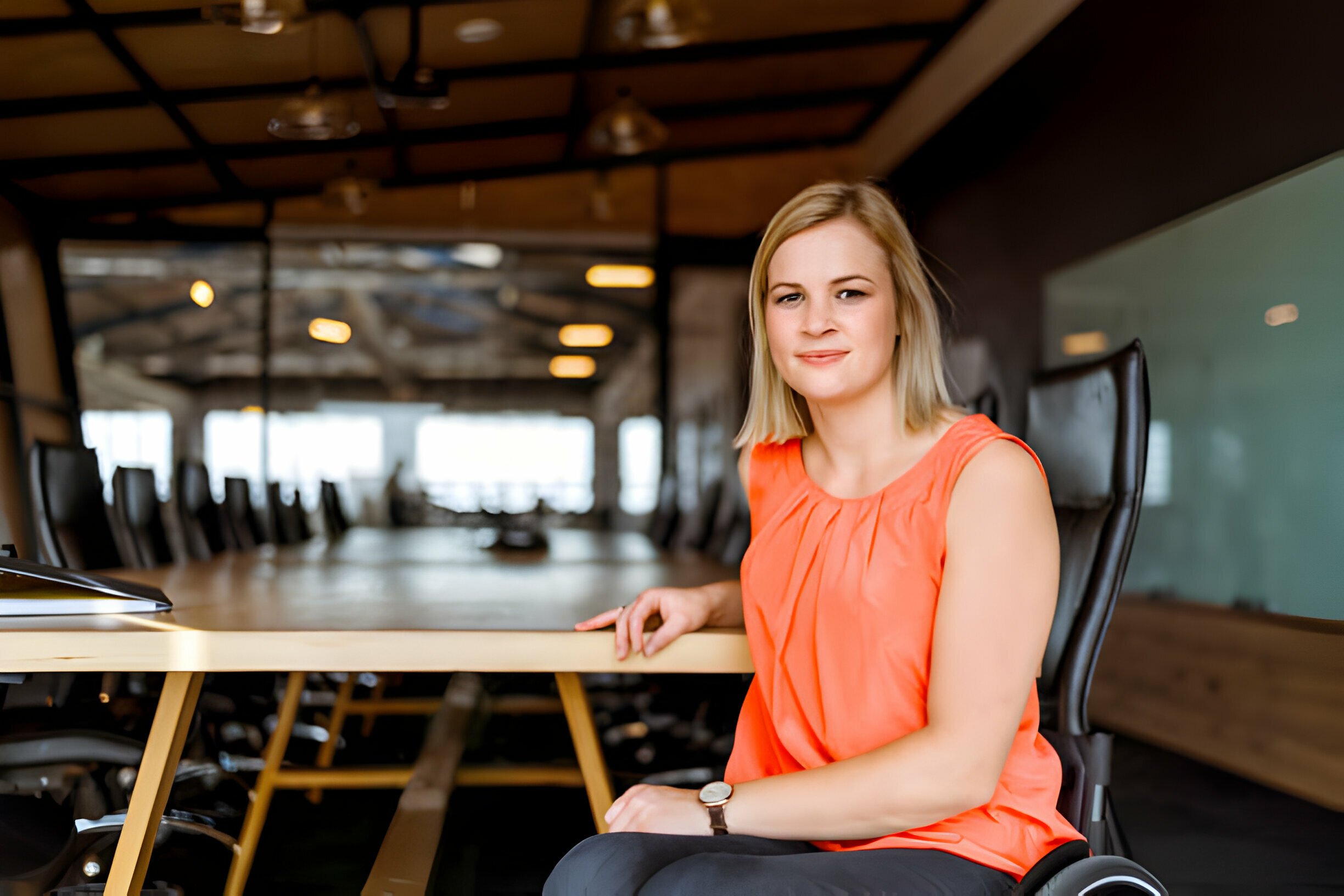A man in a wheelchair sits in a doorway high on a dark glass skyscraper, kicking away a golden ladder as pieces fall toward a crowd of people reaching upward beneath stormy skies.
As October wraps up, I keep circling back to something we rarely say out loud: not all disabled people are allies.
John Oliver once joked on HBO Last Week Tonight about former Rep. Madison Cawthorn that “being an asshole is truly accessible to everyone.” He wasn’t wrong. We like to assume disabled leaders automatically champion the disability community, that lived experience guarantees empathy.
But it doesn’t.
Governor Greg Abbott, a wheelchair user, has consistently pushed policies that harm disabled Texans. Senator John Fetterman, once celebrated for normalizing assistive technology and comfortable clothing on the Senate floor, now carries the label “Trump’s favorite Democrat.” Representation does not always translate to advocacy. Sometimes it just makes the betrayal sting more.
And I have seen that same pattern play out closer to home. Early in my federal career, when I first needed a telework accommodation, I turned to a senior colleague who was a respected disability advocate. I expected empathy. Instead, he looked me straight in the eye and said, “Keep your head down. Don’t fight this.”
That moment never left me. It might have been practical advice, but it was not allyship.
It taught me that proximity to power is not the same as solidarity, and that some of the hardest lessons come from people who should have known better.
We love to talk about inclusion in the workplace. The posters. The hashtags. The polished commitments to mental health and belonging. But the moment someone actually uses those systems, asks for flexibility, PTO, or an accommodation, the tone shifts. Suddenly inclusion has an asterisk. Suddenly the same people preaching wellness start whispering about fairness and team morale.
Genuine allyship is not about the company newsletter or the press release in October or the panel during Disability Pride Month. It is about the quiet, consistent work of believing people when they tell you what they need, without making them prove it. It is about creating systems where asking for help does not feel like a liability.
There is a hierarchy in disability culture we do not talk about enough. The visible versus the invisible. The acceptable versus the difficult. The wheelchair user makes a great photo op. The employee with PTSD, chronic pain, or neurodivergence gets side-eyed for needing too much. Passing privilege is real, and too many use it to climb the ladder only to kick it down behind them.
Having a disability does not make someone an ally. It does not even make them kind. Sometimes it just makes them powerful enough to prove they are not.
If allyship means anything, it is how we act when no one is watching, especially toward each other.




